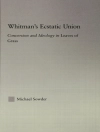‚Scintillating.‘ —Edmund White
‚A furtive treasure of the American avant-garde.‘ —Publishers Weekly
“A remarkably realized work of art.” —Matthew Stadler
This artist’s artist and poet’s poet has had a remarkably energetic, fecund and varied existence. By turns bizarre and sweetly domestic, this fractured, infinitely interesting diary begins with his father’s illness and ends with the death of his lover Pavel Tchelitchev, the Russian painter with whom he lived for 23 years. Ranging from New York to Geneva to Paris, the diary presents an array of artists and their affiliates, from the Sitwells to Peggy Guggenheim (who had on her wall ‚the messes signed Jackson Pollock‘) and Djuna Barnes (with whom Ford had lived while she wrote Nightwood). Born in 1908, Ford made his first literary foray in the 1920s from his Mississippi home with Blues: A Magazine of New Rhythms, with work by Ezra Pound, Gertrude Stein, Erskine Caldwell and Paul Bowles. When he moved to New York, he collaborated with film critic Parker Tyler on what has been called the first gay novel, The Young and Evil, published in 1933 and banned in the U.S. and England. At 21 he joined Paris’s expatriate community. His poetry books include The Garden of Disorder, introduced by William Carlos Williams, and Sleep in a Nest of Flowers, with a foreword by Edith Sitwell. He launched View magazine in 1940, publishing Marcel Duchamp and the first translations of Andre Breton’s poems. This diary offers richly observed details, both quotidian and unusual, constituting a delightful, moving, poetic portrait of a man and a subculture.—Publishers WeeklyÜber den Autor
Influential American surrealist artist, writer, and editor Charles Henri Ford (1908-2002) was born in Hazlehurst, Mississippi, and grew up in Memphis and elsewhere in Tennessee, along with his mother and sister, Ruth, who went on to become a renowned film actress. In 1933 he published
The Young and the Evil, a novel he wrote with Parker Tyler that was banned in England and America for its subversive content. He is better known, however, for his surrealist magazines:
Blues, which he published from 1929 through 1930 while he was a teenager, and
View, which ran from 1940 through 1947 and featured seminal works by up-and-coming artists of the time like Joseph Cornell, Allen Ginsberg, and Randall Jarrell. Ford’s later collections of verse include
Spare Parts (1966),
Om Krishna (1978), and
Secret Haiku (1982). Charles Henri Ford wrote: ‚To start off being a poet today you have to be young and full of illusions. To end up being a poet you have to have Another Job.‘












